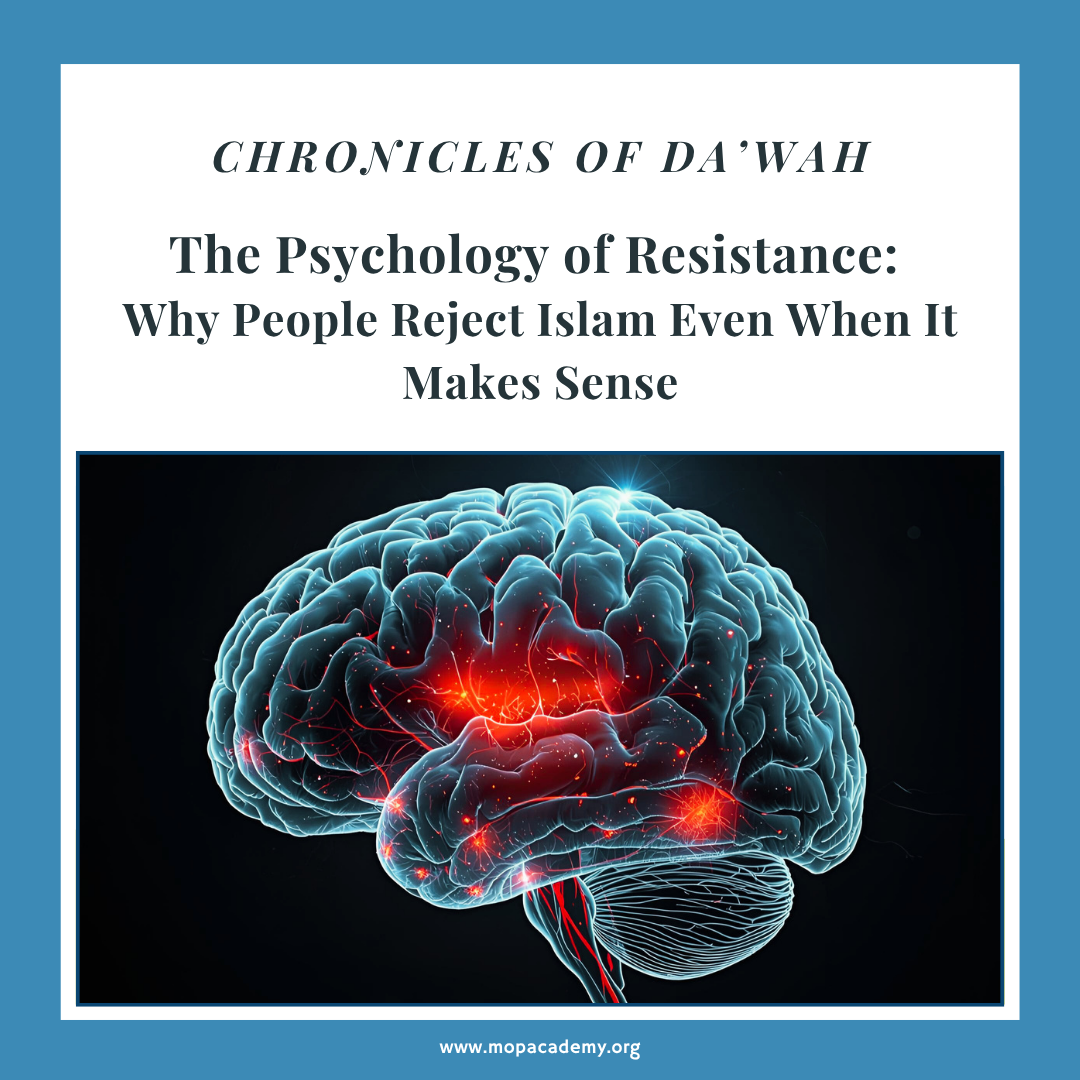
Blog entry by Sam Sam

Have you ever explained Islam clearly - the logic, the proofs, the beauty - and yet the person still didn’t accept it?
It can be confusing. Everything made sense, their objections were answered, and they even admitted, “Yeah, that’s actually true.”
So why didn’t they say La ilaha illa Allah? The answer lies not in intellect - but in psychology.
The Qur’an teaches us that rejection of truth often comes from the heart, not the mind. Understanding the reasons behind that resistance helps us become wiser, more patient, and more effective in Da'wah.
-
Pride: “What will people think of me?”
The first barrier the Qur’an exposes is pride - the same disease that prevented Iblis from bowing to Adam. Many people fear that accepting Islam means admitting they were wrong. For some, it means risking status, family, or identity.
“And, although their hearts were convinced the signs were true, they still denied them wrongfully and arrogantly. See then what was the end of the corruptors!” (Qur’an 27:14)
Even when their hearts recognize the truth, their egos resist the humility that Islam demands.
As a da’ee, your job isn’t to crush that pride, but to gently dissolve it - through humility, kindness, and living proof of faith.
-
Comfort: “Change is uncomfortable.”
Accepting Islam means rethinking your habits, beliefs, and sometimes your entire life. That’s scary. Humans are creatures of comfort. Even when the mind agrees, the heart whispers: “But this will change everything.”
The Qur’an describes those who prefer the life of this world because it’s familiar and easy:
“But you prefer the life of this world, though the Hereafter is better and more lasting.” (Qur’an 87:16–17)
Resistance often comes not from rejection of truth, but fear of transformation. Our job is to show them that faith doesn’t erase life - it beautifies it.
-
Emotional Baggage: “I can’t trust religion anymore.”
Many atheists and agnostics aren’t rejecting Allah - they’re rejecting false gods they once experienced. Corrupt clergy, hypocrisy, trauma, or religious manipulation leave deep wounds. When they hear “religion,” those wounds reopen. In these moments, intellectual arguments aren’t enough. People don’t just need proof - they need healing.
Listen. Empathize. Let them feel heard before you speak.
“It is out of Allah’s mercy that you ˹O Prophet˺ have been lenient with them. Had you been cruel or hard-hearted, they would have certainly abandoned you…” (Qur’an 3:159)
-
Social Pressure: “I’ll lose everyone I love.”
Many people know Islam is true but fear being isolated. A revert once said, “I didn’t need proof. I needed courage.”
Family, friends, and society often create invisible chains that hold people back. As da’ees, we can offer something the world can’t - a community of love. When they feel they’re gaining a new family, not losing one, their heart starts to open.
“In a friendly manner, they will be on thrones, facing one another.” (Qur’an 15:47)
-
Spiritual Veil: “The light hasn’t entered yet.”
Sometimes, you can do everything right - and they still won’t accept.
That’s when you realize guidance isn’t in your hands. The Prophet ﷺ was told:
“Indeed, you do not guide whom you love, but Allah guides whom He wills.”
(Qur’an 28:56)
Our role is to deliver the message with wisdom and sincerity - never force the fruit to ripen.
Keep planting seeds, making dua, and trusting Allah’s timing. Sometimes that heart will open years later because of a moment you once created.
Practical Tip:
Before you start your next Da'wah conversation, remind yourself:
“My goal is not to win an argument, but to understand their heart.”
Use questions more than statements. Instead of “Islam is true because…”
Try “What’s holding you back from believing this could be true?”
That one question can expose years of hidden fear or pain.
Closing Reflection
People rarely reject Islam because it lacks proof - they reject it because it demands submission.
Our mission as da’ees isn’t to overpower the intellect, but to soften the heart.
So the next time someone resists, don’t rush - reflect, empathize, and trust the process.
Because the same heart that says “no” today may whisper “La ilaha illa Allah” tomorrow.